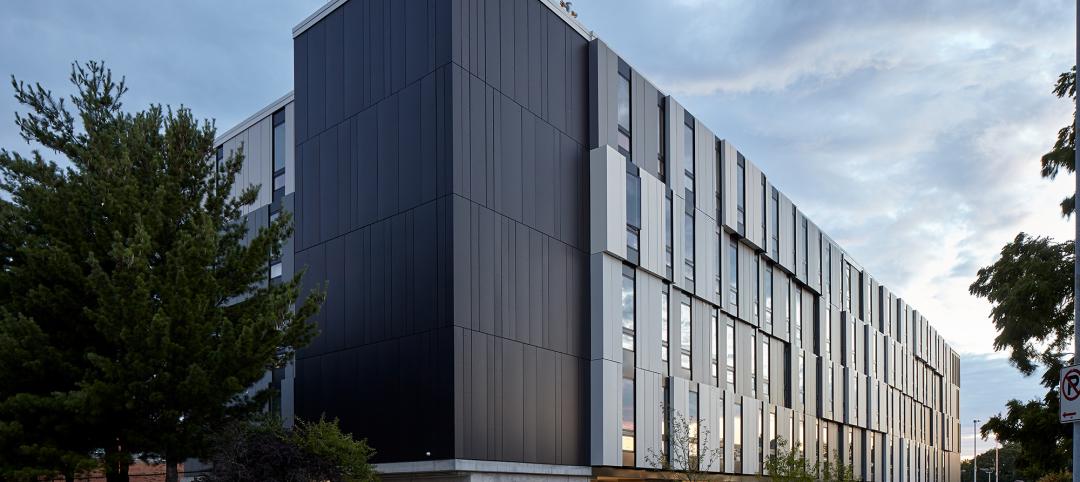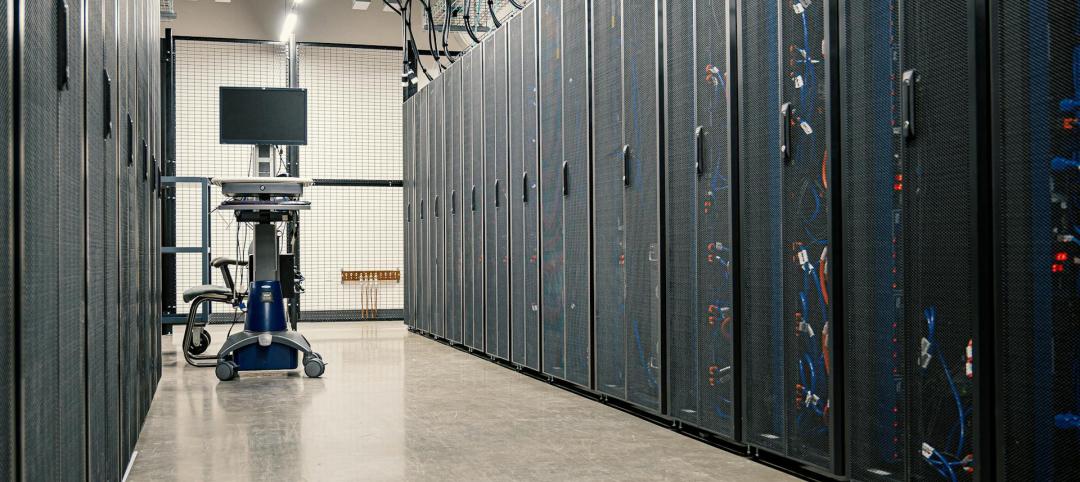The American Institute of Architects’ (AIA) Board of Directors has approved a landmark resolution—championed by AIA members—that defines immediate and long-term efforts to engage the architectural profession in the fight against climate change.
“This is a defining moment for the Institute,” said 2019 AIA President William Bates, FAIA. “We are making this our top priority in order to address the crisis our communities face. Moving the needle on this critical issue—that threatens the future of our planet and humanity—requires our firm commitment to achieving carbon neutral goals in the built environment and our immediate action. It’s imperative that the industry acts today.”
AIA and its members are rallying the profession to do more to fight climate change as buildings are one of the largest contributors to greenhouse gases. Moving forward, AIA will build on its more than 20 years of work supporting the design of sustainable and resilient communities by establishing goals to support mitigation and adaptation using the tenets of the comprehensive and holistic COTE Top Ten framework, now known as the AIA Design Excellence Framework.
Initially, AIA will focus its efforts on designing for energy, economy, and equitable communities. Additionally, the Institute will continue to encourage participation in the AIA’s 2030 Commitment and will work to develop new programs and resources that will support architects in fighting climate change.
The catalyst to the Board’s new landmark initiative was a resolution introduced by architect Betsy del Monte, FAIA, and fifty members of the Institute at AIA’s Conference on Architecture 2019. The resolution calls for revisions to AIA public policies and position statements and advocates that the Institute engage its full membership, clients, lawmakers, and communities in a multi-year education, practice, and advocacy strategy.
Related Stories
Curtain Wall | Aug 15, 2024
7 steps to investigating curtain wall leaks
It is common for significant curtain wall leakage to involve multiple variables. Therefore, a comprehensive multi-faceted investigation is required to determine the origin of leakage, according to building enclosure consultants Richard Aeck and John A. Rudisill with Rimkus.
MFPRO+ News | Aug 14, 2024
Report outlines how Atlanta can collaborate with private sector to spur more housing construction
A report by an Urban Land Institute’s Advisory Services panel, commissioned by the city’s housing authority, Atlanta Housing (AH), offered ways the city could collaborate with developers to spur more housing construction.
Adaptive Reuse | Aug 14, 2024
KPF unveils design for repositioning of Norman Foster’s 8 Canada Square tower in London
8 Canada Square, a Norman Foster-designed office building that’s currently the global headquarters of HSBC Holdings, will have large sections of its façade removed to create landscaped terraces. The project, designed by KPF, will be the world’s largest transformation of an office tower into a sustainable mixed-use building.
Sustainability | Aug 14, 2024
World’s first TRUE Zero Waste for Construction-certified public project delivered in Calif.
The Contra Costa County Administration Building in Martinez, Calif., is the world’s first public project to achieve the zero-waste-focused TRUE Gold certification for construction. The TRUE Certification for Construction program, administered by Green Business Certification Inc. (GBCI), recognizes projects that achieve exceptional levels of waste reduction, reuse, and recycling.
Modular Building | Aug 13, 2024
Strategies for attainable housing design with modular construction
Urban, market-rate housing that lower-income workers can actually afford is one of our country’s biggest needs. For multifamily designers, this challenge presents several opportunities for creating housing that workers can afford on their salaries.
University Buildings | Aug 12, 2024
Planning for growing computer science programs
Driven by emerging AI developments and digital transformation in the business world, university computer science programs are projected to grow by nearly 15% by 2030.
Energy Efficiency | Aug 9, 2024
Artificial intelligence could help reduce energy consumption by as much as 40% by 2050
Artificial intelligence could help U.S. buildings to significantly reduce energy consumption and carbon emissions, according to a paper by researchers at the Lawrence Berkeley National Laboratory.
Sponsored | Healthcare Facilities | Aug 8, 2024
U.S. healthcare building sector trends and innovations for 2024-2025
As new medicines, treatment regimens, and clinical protocols radically alter the medical world, facilities and building environments in which they take form are similarly evolving rapidly. Innovations and trends related to products, materials, assemblies, and building systems for the U.S. healthcare building sector have opened new avenues for better care delivery. Discussions with leading healthcare architecture, engineering, and construction (AEC) firms and owners-operators offer insights into some of the most promising directions. This course is worth 1.0 AIA/HSW learning unit.
Office Buildings | Aug 8, 2024
6 design trends for the legal workplace
Law firms differ from many professional organizations in their need for private offices to meet confidentiality with clients and write and review legal documents in quiet, focused environments
Data Centers | Aug 8, 2024
Global edge data center market to cross $300 billion by 2026, says JLL
Technological megatrends, including IoT and generative AI, will require computing power to be closer to data generation and consumption, fueling growth of edge IT infrastructure, according to a new JLL report.

















